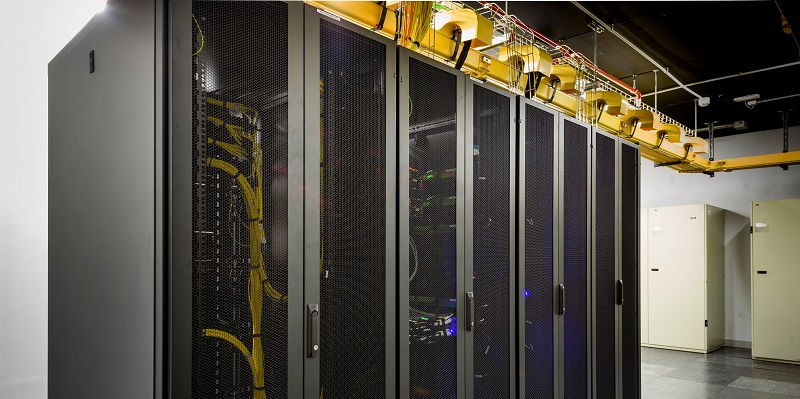In a major expansion move, GDS announced the grand opening of its state-of-the-art Nusajaya Tech Park (NTP) data center campus in Johor, Malaysia. This strategic development marks GDS as the first and only data center player to identify the Sijori region as an ideal location for data center deployment. With its extensive industry know-how and a first-mover advantage, GDS is set to revolutionize the region’s data center landscape while positioning itself as a catalyst for the area’s journey towards becoming a world-class AI computing hub.
The Nusajaya Tech Park: A Cutting-Edge Data Center Campus
Spanning across 210 hectares, the Nusajaya Tech Park is poised to become a significant tech hub, offering a total net floor area of 22,500 sqm (242,200 sq ft) and an impressive power capacity of 69.5MW in its initial phase. However, the grand design of the campus extends further, with plans to provide a substantial 836,100 sqm (9 million sq ft) of business space when fully built out.
GDS’s Strategic Decision: Identifying Sijori as an Ideal Location
Recognizing the immense potential the Sijori region holds as a key market for data centers, GDS made the visionary decision to establish its data center campus in Johor. The strategic positioning of the NTP allows for exponential growth, harnessing the region’s economic development and connectivity to major cities in the Asia-Pacific region.
GDS’s First-Mover Advantage and Industry Expertise
As the pioneering data center player in the Sijori region, GDS boasts a first-mover advantage, giving it a considerable edge over potential competitors. With industry-leading expertise, backed by years of experience operating multiple data centers across major cities in China and Hong Kong, GDS has honed its technology and infrastructure to meet the demanding requirements of businesses in the digital era.
NTP as a Catalyst for the Region’s Journey Towards a World-Class AI Computing Hub
GDS envisions its NTP data center campus as a catalyst for transforming the Sijori region into a world-class AI computing hub. By providing cutting-edge infrastructure, optimal connectivity, and scalable solutions, GDS aims to attract innovative businesses and unlock the potential for advanced technological breakthroughs in the region.
GDS has an extensive data center network in China and Hong Kong, with dozens of data centers spread across major cities. This robust and reliable network infrastructure allows GDS to offer seamless connectivity and ensure high-speed, low-latency data transmission. It meets the increasing demands of businesses and organizations for secure and agile data processing.
Expanding Market Reach: GDS’s Plans for Indonesia
Firmly establishing itself as a dominant player in Southeast Asia, GDS has recently made inroads into Indonesia with a planned development. By acquiring land for a future data center campus, GDS is poised to extend its market reach, meeting the growing demand for data center services in the country.
YTL’s Green Data Center Park: GDS’s Upcoming Development
In an effort to expand its presence in Johor, GDS is developing another data center campus at YTL’s upcoming Green Data Center Park. This collaboration with YTL, a renowned infrastructure conglomerate, showcases GDS’s commitment to sustainable practices and its recognition of the importance of green technologies in the data center industry.
In conclusion, GDS’s launch of its Nusajaya Tech Park data center campus in Johor, Malaysia, marks a significant step in the company’s expansion strategy. With its extensive industry know-how, first-mover advantage, and forward-thinking vision, GDS is well-positioned to transform the Sijori region into a thriving AI computing hub. As GDS expands its network across Southeast Asia, its commitment to sustainability and cutting-edge infrastructure solidifies its position as a leading data center provider in the region.

